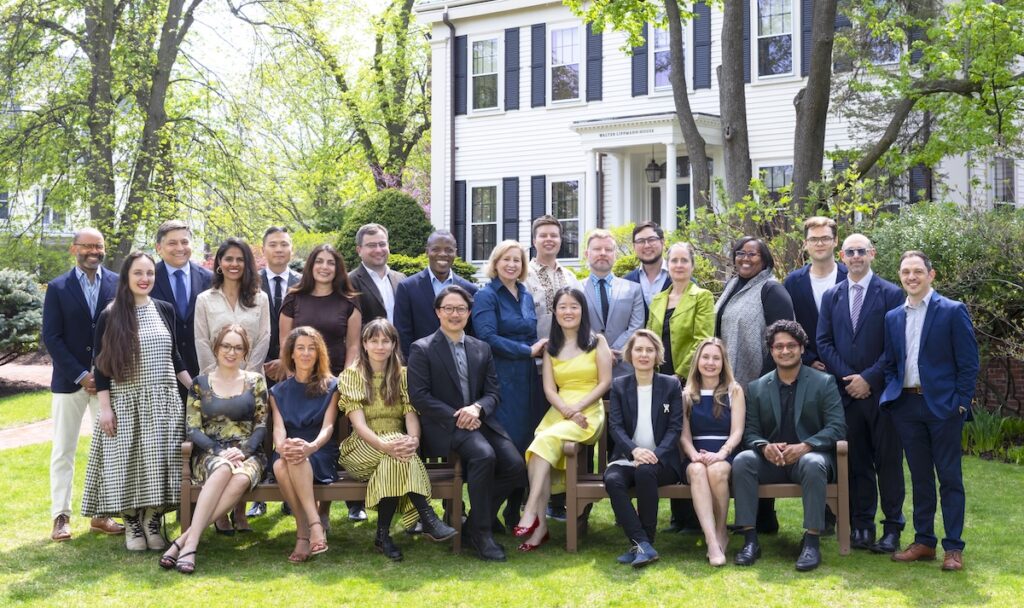
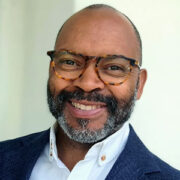
Tyrone Beason
Tyrone Beason is a staff writer for the Los Angeles Times’ environment, climate, health and science team whose work includes reporting on Indigenous land issues. He joined the Times as a staff reporter in 2019 to cover the 2020 U.S. presidential campaign. Using narrative writing, scripted essays and visual storytelling, he examined the ways that race shapes the nation’s politics, and after the election, he traveled the country in search of a meaningful racial reckoning in the series “My Country.” Beason previously spent 23 years at The Seattle Times, where he was a columnist, Sunday magazine writer, member of the features staff and business reporter. In 2023, he won a Sigma Delta Chi Award for excellence in journalism from the Society of Professional Journalists for his reporting on inequality in society, and he appeared in the documentary “Racist Trees,” a about segregation in Palm Springs, California. Additionally, a video report he co-produced about racism in an Iowa town earned a 2021 L.A.-area Emmy nomination.
He is studying land reclamation efforts and conservation movements in the U.S. as well as how identity and historical injustices factor in our political discourse.
- Instagram: @tyrone_california
Links
- Portraits of Homelessness
- A nearly all-white Iowa town asked itself: ‘Why do we hate?’
- A Black reporter’s road trip to the inauguration
- Why do so many feel like outsiders in this California wine town?
- More people of color are finding peace in the Inland Empire
- The Times podcast: What it means to be a Black cowboy
- A search for tolerance in the heart of Jewish L.A. reveals fear, resolve and signs of hope
- Black farmer looks to ancestors to help Californians battle climate change
- The Times podcast: What it means to be a Black cowboy
- LA Times Today: An Indigenous Californian dreams of a united front on reparations
- Here Arizona nurtures the Navajo Nation, but lacks water
- A new national monument would protect a swath of California’s desert

Kyrylo Beskorovainyi
Kyrylo Beskorovainyi is the co-founder and publisher of the Ukrainian popular science media company Kunsht. As a media entrepreneur and science journalist, he produces podcasts, teaches science journalism at the Ukrainian Catholic University in Lviv and trains independent journalists. He has organized projects to counter disinformation and exhibitions on digital freedom and in 2022, he co-founded Science at Risk!, an initiative to help Ukrainian scientists and institutions cope with challenges during the war in Ukraine. In 2016, he served as Ukraine’s youth delegate to the United Nations. In 2020 he received a UNICEF Youth Changemaker in Education and Science award and in 2020, he was named to Kyiv Post’s Top 30 under 30 list. His 2020 children’s book about a boy from a family of astrophysicists who tries to get to know more about the universe, was named as a finalist for the BBC Book of the Year award in 2020.
He is studying how to sustain and improve fact-based science reporting and counter disinformation during times of war and social crisis.
Links

Benjamin Bidder
Benjamin Bidder is an economics and business reporter for the German news magazine Der Spiegel who covers Russia and Ukraine as well as German and global economic affairs. He previously served as Moscow correspondent for Spiegel Online and reported on the Maidan-Revolution and the annexation of Crimea. Bidder is particularly interested in complex socio-economic developments such as the consequences of German reunification and the Brexit vote. In 2023, he was awarded the German Journalism Prize (Deutscher Journalistenpreis, DJP) for uncovering shipments of war-related microelectronics from Germany to Russia. He is the author of the 2016 book “Generation Putin: Das neue Russland verstehen” (“Understanding the New Russia”) about Russia’s first post-Soviet generation.
He is studying the causes of social division and the devaluation of facts while researching strategies media can use to communicate effectively during political polarization.
Links

Lina Chawaf
Lina Chawaf is a Syrian journalist and CEO of Radio Rozana, an independent Syrian media network that broadcasts from France. Chawaf, who lives and works in exile, produces programming that focuses on Syrian affairs, women rights, social taboos and gender stereotypes. She has trained citizen journalists to become independent reporters inside Syria and has hired them for their coverage. She previously served as president of Community Media Forum Europe (CMFE), was founder and program manager for Arabesque Radio in Syria and worked as a television director and editor for a Syrian production company. After the Arab Spring protests and a crackdown on dissent in Syria, Chawaf moved abroad, first to Canada and then France. As a media consultant for International Media Support (IMS), she helped launch a series of independent radio stations in several countries affected by the Arab revolutions, including Libya and Yemen. She was named as the voice of a free Syria by Canal France International and she won the Press Freedom Award from Reporters Without Borders.
She is researching how to support women media leaders who are working in conflict zones while battling gender stereotypes and taboos.
Links
- “Radio Is You,” with Lina Chawaf, Editor-in-Chief at Radio Rozana, Syria
- Do journalists in Aleppo have freedom?
- The forgotten war in Syria
- Reporting from Gaziantep
Radio Rozana episodes about taboos and stigmas

Nilesh Christopher
Nilesh Christopher is an India-based journalist covering the intersection of technology, business and society. His stories have been published by Wired, the BBC, Vice, the South China Morning Post and The Economic Times. Between 2020 and 2023, he was the South Asia correspondent for Rest of World. His honors include the Society for Advancing Business Editing and Writing’s 2023 Best in Business Award for a feature he co-wrote on Foxconn’s struggles in producing iPhones in India; a 2023 South Asian Journalists Association Award for culture reporting for his co-written article “How a YouTube channel is transforming a remote village in Bangladesh”; and a jury special mention from One World Media’s 2024 New Voice Award for his investigative stories exploring AI’s impact on politics, labor and employment in South Asia. He additionally was part of the team that won the 2022 Society of Publishers in Asia’s Excellence in Technology Reporting award for their project on global gig workers.
He is researching AI-generated audio and video content and how U.S. newsrooms combat deepfakes in politics. He will create a playbook for local newsrooms in India for testing and verifying manipulated content.
Links

Jon Collins
Jon Collins is a senior reporter covering the future of public safety for MPR News in Minneapolis, a city that has been at the center of police reform discussions since George Floyd was killed there in 2020. He is a member of the newsroom’s Race, Class and Communities team. Collins previously covered the Minnesota Legislature for northern Minnesota newspapers, ran a hyperlocal news site in southwest Minneapolis and worked as a reporter for the nonprofit Minnesota Independent. He co-created the podcast “74 Seconds,” which won a Peabody Award and top honors at the Third Coast International Audio Festival in 2017. He also was a 2020 John Jay/H.F. Guggenheim Reporting Fellow and a Dart Center gun violence fellow.
He is examining how traditional policing policies disproportionally target the poor and why economic disparities are widening in the U.S.
- X: @jonscollins
Links

Jesselyn Cook
Jesselyn Cook is a Canadian-American journalist who has covered the intersection of tech and democracy as an investigative reporter at NBC News and a senior reporter at HuffPost. Her book “The Quiet Damage: QAnon and the Destruction of the American Family,” investigating the allure of — and familial destruction caused by — conspiracy theories and other disinformation, won the 2023 J. Anthony Lukas Work-In-Progress Award from the Nieman Foundation and Columbia Journalism. She has earned international reporting grants and was selected for Fulbright Germany’s Berlin Capital Program in 2017. Her experience teaching journalism courses to undergraduate students on the East and West Coasts and, most recently, in the South, has deeply informed her thinking about the future of the news industry and the challenges that lie ahead.
She is examining how to improve young people’s access to quality news and proactively forge a healthier relationship between the next generation and media.
- X: @JessReports
Links:
- ‘I Miss My Mom’: Children Of QAnon Believers Are Desperately Trying To Deradicalize Their Own Parents
- Men on Pinterest are creating sex-themed image boards of little girls. The platform makes it easy.
- Trump Insiders Are Quietly Paying Teen Memers For Posts
- Selfies, Surgeries And Self-Loathing: Inside The Facetune Epidemic
- Here’s What It’s Like To See Yourself In A Deepfake Porn Video
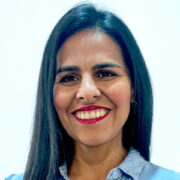
Diana Durán Nuñez
Diana Durán Nuñez is a Bogotá -based journalist who most recently was a reporter for the TV news magazine “Los Informantes” on Caracol Televisión in Colombia. She previously was a news researcher for the Washington Post’s Bogotá bureau, contributing to the newspaper’s coverage of all of Spanish-speaking South America. For over 15 years, she has focused on human rights abuses, drug trafficking, corruption and Colombia’s internal conflict. Prior to joining the Post in 2021, she was a reporter and editor for El Espectador, Colombia’s oldest newspaper, and in 2016, she was named as the paper’s first female judicial editor. She has received two Simón Bolívar National Journalism Awards, Colombia’s highest honor in journalism, in 2008 and 2013. She also won the 2010 Inter American Press Association’s Excellence in Journalism Award and has taught introduction to journalism as a university professor at Pontificia Universidad Javeriana in Bogotá.
She is researching recent human rights abuses by Latin American governments carried out under the guise of legal operations.
- X: @dicaduran
Links
- The pink river dolphins of the Amazon have a warning for humans
- How four children survived Amazon plane crash, 40 days alone in jungle
- Former head of Colombian army charged in killings of 130 civilians
- Los Informantes: Carlitos Páez, sobreviviente de la tragedia de Los Andes, relata su odisea de 72 días
- Los Informantes: Una improbable historia de amor: él un ex-FARC y ella una líder que lucha en contra de la guerrilla

Anna Filipova
Anna Filipova is a visual journalist and documentary filmmaker who works and lives in the Arctic. For more than 10 years, she has covered the Polar regions, where she explores environmental and scientific topics from remote and inaccessible areas. She previously worked for the International New York Times (Paris bureau) and her work has been published by The New York Times, CNN, The Washington Post, The Guardian, the BBC and other news outlets. She has been a grantee of the Pulitzer Center, the European Journalism Centre, the International Women’s Media Foundation and National Geographic. In 2021, her project on the biggest ground satellite station in the world was featured in The New York Times’ Year in Pictures.
She is studying climate change and globalization and examining new technologies to aid storytelling about the polar regions.
- X: @Anna_Filip
Links

Bianca Giaever
Bianca Giaever is an independent radio journalist and filmmaker based in Vermont and New York City. Her upcoming documentary feature film, “Free Help,” was recently profiled in The New York Times. She is the creator and host of “Constellation Prize,” a podcast distributed by The Believer magazine that profiles strangers and examines their relationship to God and the divine. She has also worked as a producer on The New York Times’ audio team, where she produced and occasionally hosted episodes of “The Daily.” In 2013, her college short film “the Scared is scared” was named “Web Video of the Year” by USA Today. Her awards include a 2016 Daytime Emmy and a 2015 Webby Award.
She is studying the intersection of religion and climate change with a specific focus on how religious and cultural worldviews impact the way individuals perceive and respond to the climate crisis.
- X: @biancagiaever
- Instagram: biancagiaever
Links
- The Daily: Delilah
- The Daily: ‘An Obituary for the Land’
- The Daily: Cosmic Questions: Conversations about the big, dreamy, existential questions we don’t have all the answers to.
- Constellation Prize: Crossing Guard

David Herszenhorn
David M. Herszenhorn is the Russia, Ukraine, East Europe editor at The Washington Post, where he has overseen coverage of the war in Ukraine and of wartime Russia. He joined the Post in 2022 after six years as chief Brussels correspondent and associate editor at Politico Europe, where he led coverage of the EU, NATO, transatlantic relations, Brexit, Europe’s response to the coronavirus pandemic and the outset of the war. Herszenhorn previously worked at The New York Times as an international correspondent based in Moscow, Congressional correspondent in Washington, and metro reporter in New York, New Jersey and Connecticut. He is the author of “The Dissident: Alexey Navalny, Profile of a Political Prisoner.”
He is studying models of transnational governance, their failure to prevent armed conflict and prospects for reform to secure peace, protect human rights and promote diversity and equality in global leadership and policymaking.
- X: @herszenhorn
- Facebook: David Herszenhorn
Links
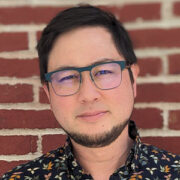
Ryan Y. Kellett
Ryan Y. Kellett is vice president of audience at Axios Media, where he oversees the distribution of national and local journalism. Previously, he spent 11 years at The Washington Post, where he guided the organization through the rise of mobile/social internet publishing, quadrupling readership globally and massively expanding subscriptions. He has covered three presidential elections, including leading the Post’s digital efforts in 2012, and contributed to high-profile projects such as the police shootings database and opioid files. He additionally was an author of the proposal on comments and communities that became The Coral Project. Kellett and his teams have won multiple Edward R. Murrow, WAN-IFRA, and Webby awards. He got his start at NPR where he was selected as the first-ever social media intern. He is an active board member of the Online Journalism Association.
He is studying the economic and cultural incentives of social media platforms and the role online creators play in disseminating fact-based journalism.
- X: @rkellett
Links

Elena Kostyuchenko
Elena Kostyuchenko is an exiled Russian journalist who collaborates with Meduza, an independent Russian news organization based in Latvia. She previously worked for 17 years as a special correspondent for the Russian independent newspaper Novaya Gazeta. She reports on conflict, crime and social issues and covers communities, people and places that are ignored by the media. Kostyuchenko was among the first to write about the protest rock band Pussy Riot and the presence of Russian troops in eastern Ukraine. She is a recipient of a European Press Prize, the Gerd Bucerius Prize for Free Press in Eastern Europe (now the Free Media Award) and was a 2018 Klebnikov Russian Civil Society Fellow at Columbia University’s Harriman Institute for Russian, Eurasian and East European Studies. In October 2022, she was poisoned while traveling in Germany and has written about the attack. She is the author of “I Love Russia: Reporting from a Lost Country” as well as “Unwanted on Probation” and “We Have to Live Here.”
She is studying postcolonialism, folklore and research on death and trauma.
Links
- Mykolaiv A report from a Ukrainian city surrounded by Russian troops
- Battle Lines
- Rust: How Nornickel is converting the Taymyr Peninsula into pure profit.

Lasha Kveseladze
Lasha Kveseladze is an investigative journalist for the private television company Mtavari Channel and co-founder of the Journalistic Data Processing Centre in Tbilisi, Georgia. He is also the creator of Kavshirebi, a tool for investigative journalists to expose hidden connections between businesses and government officials. He previously worked as an investigative reporter for the television company Rustavi2. Kveseladze has focused on investigating corruption, abuse of power and criminal cases, particularly femicide and homicide. He has exposed several significant irregularities in the financial declarations of prime ministers, cabinet ministers, members of parliament and judges. As a result of one of his investigations, a 65-million-euro government tender to build new sports stadiums was halted due to irregularities, inadequate documentation and potential conflicts of interest. He also investigated the case of Afgan Mukhtarli, an Azerbaijani journalist and political activist residing in Georgia, who was abducted in Tbilisi in May 2017, taken to Azerbaijan and later sentenced to prison on charges widely seen as politically motivated. Kveseladze won the GIPA-Josh Friedman annual Prize for his investigative TV story “Afgan Mukhtarli’s Disappearance Day – Surveillance Camera Records and Suspicious Circumstances,” which revealed that surveillance camera recordings along the route described by the abducted journalist were mysteriously deleted.
In recent years, his reporting has centered on exposing Russia’s evasion of sanctions and revealing financial sources of Kremlin-backed violent far-right groups operating in Georgia.
He is studying open-source tools and Russian influence over the Caucasus.
Links
- The DNA tests of the Bureau of Examination may be called into question
- Tbilisi City Hall-owned Tbilservice LLC initiated a procurement for 10 special-purpose vehicles from the sole bidder, Russia’s largest truck manufacturer, KAMAZ, despite sanctions
- Microchips, potentially repurposed from household appliances, enter Russia from Georgia.
- Sanctioned luxury cars are purchased in Europe and transported to Russia through Armenia and Georgia
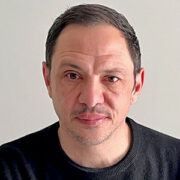
Robert Libetti
Robert Libetti is a filmmaker and journalist. He’s currently an executive producer for The Wall Street Journal, where he leads video investigations and documentaries. He and his team have reported on everything from the Wagner Group and the war in Ukraine to Tesla autopilot crashes, the January 6th Capitol riot and TikTok’s algorithm. Their documentary about the Wagner Group was released two weeks before the group’s failed insurrection and revealed 64 companies that Wagner and its founder Yevgeny Prigozhin used to funnel money to and from the Kremlin. The U.S. Treasury sanctioned companies identified in the film just days after the attempted coup. Libetti and his team were also the first to reveal how the Proud Boys led and instigated the January 6th attacks on the U.S. Capitol in 2021. Many of the individuals they identified, just weeks after the attack, have now been convicted of seditious conspiracy. Libetti’s work has been nominated for several Emmys, a duPont-Columbia Award and a Peabody. He has won two Loeb Awards and was part of a team that won the IRE Philip Meyer Award for Investigative Journalism. He previously worked as a senior video journalist at the Journal, a senior video producer for Business Insider and a video journalist for FiOs1 News.
He is studying the intersection of open-source research, traditional journalism and documentary filmmaking.
- X: @RobLibetti
Links
- Shadow Men: Inside Wagner, Russia’s Secret War Company
- Russia Is Using a Secret Network to Steal Ukrainian Grain
- Ukraine ‘Road of Death’ Shows Russians Fired on Civilians
- Illegal Israeli Settler Roads Are Surging Across West Bank Since Oct. 7
- How Hamas Turned an Israeli Music Festival Into a Massacre
- How TikTok’s Algorithm Figures You Out
- Amazon Sellers Are Sourcing From Banned Factories in Bangladesh
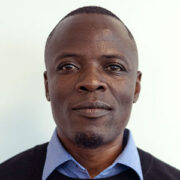
James Okong’o
James Okong’o is a digital investigation journalist for Agence France Presse (AFP) who covers Anglo-African countries from his base in Nairobi, Kenya. He has written hundreds of fact-checking reports and produced dozens of other articles on disinformation on events ranging from Covid-19 to the Kenyan 2022 elections, Zimbabwe elections and the Ethiopian conflict. Before relocating to Kenya, he worked in Johannesburg for two years. Prior to joining AFP, he worked as a fact-checking journalist at Code for Africa. He won the 2023 Fact-Check of the Year Award from the African Fact-Checking Awards, and was a runner up in 2022.
He is studying the relationship between online influence and coordinated disinformation campaigns in sub-Saharan Africa with a focus on operations to weaponize information in Kenyan elections.
- X: @okongojim
Links

Ben Reininga
Ben Reininga is the head of editorial at Snapchat, where he leads a team focused on creating high-quality content for tens of millions of users. He has built partnerships with major news outlets like The Washington Post, The New York Times, The Wall Street Journal, NBC, The Guardian, Axel Springer and others; set policy to ensure accuracy and credibility; and launched products to create better ways for users to get news and information. He oversees Snap’s original news show, “Good Luck America,” and launched the company’s first foray into local news, “Good Luck Los Angeles.” Reininga and his team also notably created “523,” a first-of-its-kind project to remove barriers of entry and fund underrepresented creators on the platform. Reininga previously led a 50-person video team at Gizmodo Media Group and the newsrooms at NowThis News and Refinery29, where he built ecosystems to enable journalists to reach people where they are. His teams broke award-winning stories and documentaries on a broad range of topics from the challenges of tech advancements to profiles of transgender teens across America and a documentary on high school cricket in Queens. Reininga discovered his taste for journalism while working for Columbia University’s student paper, the Columbia Daily Spectator.
He is studying the rise of creator journalists on social platforms, identifying responsible ways to harness growing audience interest while maintaining credibility.
- X: @BenReininga
Links
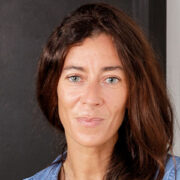
Sandrine Rigaud
Sandrine Rigaud is a French investigative journalist and filmmaker who most recently served as editor-in-chief of Forbidden Stories, a global network of journalists pursuing the work of silenced journalists. Since 2019, she has coordinated many cross-border investigations including “The Pegasus Project,” an international project that revealed how governments spied on journalists, opposition politicians, activists, lawyers and others using Pegasus spyware developed by the Israeli NSO Group, and “The Cartel Project,” in which reporters around the world continued the work of slain Mexican journalists. The investigations she has led have won multiple honors including George Polk awards, the Maria Moors Cabot Prize and the Daphne Caruana Galizia Prize. She is the co-author of “Pegasus: How a Spy in Your Pocket Threatens the End of Privacy, Dignity, and Democracy” and has directed feature-length investigative documentaries for French television.
She is researching how to make cross-border investigations more accessible to journalists around the world, including in countries where press freedom is threatened.
Links

Darcel Rockett
Darcel Rockett is a senior journalist at the Chicago Tribune, where she specializes in stories of racial justice, equity, activism, and accessibility and has helped run the publication’s website. Prior to her joining the Tribune, she worked for The Associated Press, CBS 2 Chicago, and The Arizona Republic. Her byline has appeared in the Los Angeles Times and Entertainment Weekly, among other outlets. Her writing has won recognition from Public Narrative (the Studs Terkel Award), the Illinois Press Association and the Illinois State Historical Society for her features, race, and diversity reporting.
She is examining the impact of the Supreme Court’s reversal of affirmative action in higher education and the repercussions of the decision on the future of the Black middle class.
Links
- Illinois’ Underground Railroad: Tribune series shines light on freedom seekers’ journeys through state
- Repairing homes as a form of public art, Tonika Lewis Johnson helps Englewood reinvest in the disinvested
- The Chicago Golden Gloves was solely for men for decades. Then women entered the ring in 1994 and made history.
- Photographs shine a light on how a lack of masking is pushing Chicago residents with disabilities out of the public sphere
- ‘Ask Amy’ says goodbye, making way for new advice columnist, R. Eric Thomas
- When strength, resilience and #BlackGirlMagic is a burden
- ‘Monumental’ spotlights Oscar Dunn, the first elected Black lieutenant governor in Louisiana and US
- Bronzeville’s Watch Guard group is redefining what community looks, works and feels like with its patrols

Mike Shum
Mike Shum is an American filmmaker of Chinese descent who works with a variety of news outlets, including as a director, producer and cinematographer for “PBS Frontline.” He began his career covering stories ranging from the fall of Tripoli in Libya to the M23 rebels in the Democratic Republic of Congo. His 2014 collaboration with The New York Times on an ISIS massacre in Iraq garnered him his first News and Documentary Emmy nomination for Outstanding Interview. In 2017, he ventured into investigative journalism documenting accountability in the Indian Health Service (“Predator on the Reservation”), the COVID-19 pandemic and the aftermath of George Floyd’s murder. In 2023, he received the National Association of Black Journalists’ Salute to Excellence Award for his feature directorial debut, “Police on Trial.”
He is researching the landscape of journalism and press censorship in the global Chinese diaspora, with a focus on Hong Kong and Macau over five decades.
- X: @MikeShumFilms
- Instagram: @mike_shum_
Links

Gina Smith
Gina Smith is the investigations and projects editor for McClatchy’s South Carolina newspapers who supervises a team of reporters in three newsrooms for statewide and regional audiences. She also is founder and director of SC Investigates, a nonprofit that provides free tools to South Carolina newsroom professionals. A veteran of newspapers in the Deep South, she previously worked as a reporter for The State newspaper in Columbia, South Carolina. The work of her McClatchy team has been recognized by IRE and the Society for News Design, among others and has changed laws, exposed government corruption and given voice to those in marginalized communities.
She is researching new training models for investigative reporters who are working at the local news level.
- X: @GinaNSmith
Links
- Cashed Out: Money was promised to her after brain injury. But SC judges let most of it go to companies
- Cut Off: in One Black community, limbs are being amputated at an alarming rate. It didn’t have to be this way.
- They executed people for the state of South Carolina. For some, it nearly destroyed them.
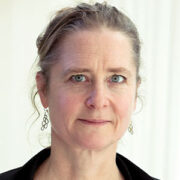
Line Vaaben
Line Vaaben is an editor and immersive journalist at the Danish daily newspaper Politiken, where she leads projects with other reporters, editors, and visual staffers. She holds the unique title of existential editor and produces reports on what it is like being human. In 2019 she wrote the leading Danish textbook on narrative journalism and she teaches the craft of storytelling to students and colleagues. She previously worked for several national Danish newspapers including Dagbladet Information and Kristeligt Dagblad. In 2022, she published “En forudsigelig forbrydelse” (“A Predictable Crime”), a book about hundreds of femicides in Denmark. Her honors include the 2022 Danish Publicist Prize and the 2023 Jyllands-Posten’s Award for nonfiction. She was an Ochberg Fellow in 2023 and a senior fellow in 2024 at The Dart Center for Journalism and Trauma at Columbia University.
She is studying trauma-centered reporting and PTSD, focusing on how to cover intense human stories while building resilient newsroom cultures to counter emotional fatigue and burnout.
- X: @livaaben
Links
- “I have no desire to open up this man’s skull. I do it because I have to”
- Everything is last round. Because Teddy has decided to end his life.
- I followed a pig’s journey from birth to pork roast. It complicated my relationship with my Christmas food.
- The Göteborg Fire
- He should have been a boy
In Nieman Storyboard:

Marcus Yam
Marcus Yam is a foreign correspondent and photojournalist with the Los Angeles Times. Born and raised in Kuala Lumpur, Malaysia, he left a career in aerospace engineering to pursue photojournalism. His work spans a range of topics but over time has taken viewers to the frontlines of conflict, struggle and intimacy. Yam was awarded the 2022 Pulitzer Prize for Breaking News Photography for documenting the human toll of the U.S. withdrawal from Afghanistan. In 2022, he received the Overseas Press Club’s Robert Capa Gold Medal for his stirring photographs of the war in Ukraine. Yam is also a two-time recipient of the Robert F. Kennedy Journalism Award, notably in 2022 for coverage of the fall of Afghanistan and in 2019 for his body of work showing the everyday plight of Palestinians during deadly clashes in Gaza.
He is exploring new frameworks for covering war and fostering empathy while undertaking studies in a range of writing genres including narrative storytelling and opinion writing.
Links:

Albee Zhang
Albee Zhang is a breaking news correspondent for Reuters in China who covers topics from geopolitical issues to societal trends. She previously worked for Agence France-Presse in Shanghai as a writer and an economics news assistant and as a researcher for The New York Times in Beijing. In 2021, she was a member of The New York Times team that won the Pulitzer Prize for Public Service for coverage of COVID-19. She also was part of the Times team that won a 2022 honorable mention for excellence in feature writing from the SOPA Awards for “The Chinese Dream, Denied.”
She is examining China’s international ambitions and their impact on world order. After studying at Harvard, Zhang will begin a nine-month reporting fellowship with The Associated Press as part of a Nieman-AP partnership supported by Schmidt Futures.